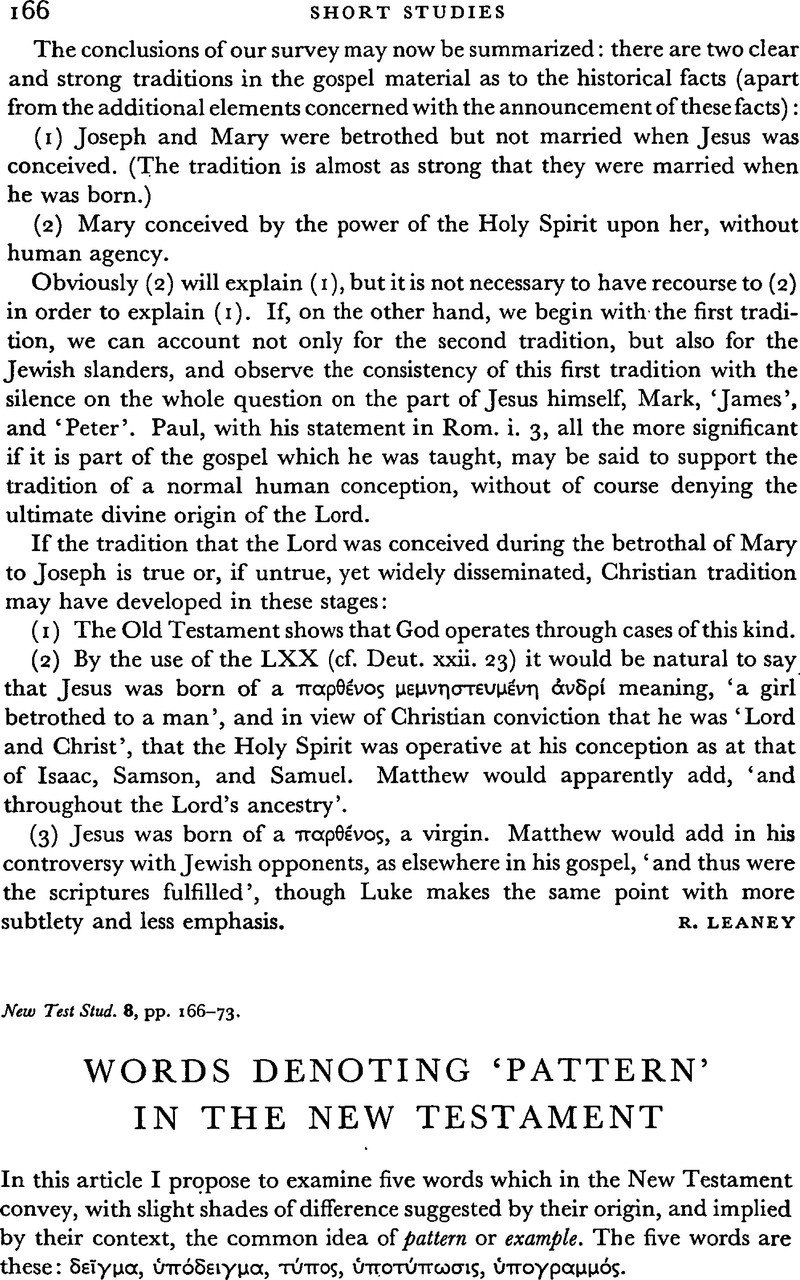Article contents
Words Denoting ‘Pattern’ in the new Testament
Published online by Cambridge University Press: 05 February 2009
Abstract

- Type
- Short Studies
- Information
- Copyright
- Copyright © Cambridge University Press 1962
References
page 167 note 1 The quotations from the papyri are taken for the most part from Moulton and Milligan, The Vocabulary of the Creek Testament.
page 167 note 2 ‘Nowhere does the word (δειγμαΤίзειν) convey the idea of “making an example” … but signifies simply “to display, publish, proclaim”.’ Lightfoot, on Col., ii. 15. The New English Bible translates, ‘Being a man of principle, and at the same time wanting to save her from exposure’.Google Scholar
page 168 note 1 Westcott, however, in his commentary on Hebrews (p. 216) says: ‘Like our word “copy” the word ūπόδειγμα expresses not only the image which is made by imitation but also the model which is offered for imitation.’Google Scholar
page 169 note 1 ‘So that no one may fall by following this evil example of unbelief’, New English Bible (italics are mine).
page 170 note 1 Leenhardt, F. J. (The Epistle to the Romans (E.T. 1961), p. 172) finds the expressions in this verse puzzling. He thinks that ‘if we cut out the difficult part of these verses (from ύπήκούσαΤε to διδαξήσ) the development of the though gains in simplicity; we see here perhaps a very gloss’. This does not seem to be a very satisfactory way of dealing with a difficulty in the progress of Paul's thoguhg! Paul here assumes that a church which he has not founded has been instructed in a common Τύποσ διδαξήσ or catechism.Google Scholar
page 170 note 2 This is made clear in the New English Bible: ‘These things happened as symbols to warn us not to set our desires on evil things, as they did.’
page 172 note 1 ‘For an ensample of them which should hereafter believe in him to eternal life’ (R.V.); ‘For an example to those who were to believe in him for eternal life’ (R.S.V.); ‘hat I might be typical of all who were in future to have faith in him and gain eternal life’ (N.E.B.).
page 172 note 2 See Stauffer, E., New Testament Theology (E.T. 1955), pp. 236ff.Google Scholar
page 172 note 3 ‘Keep before you an outline of the sound teaching which you have heard from me’ (N.E.B.).
- 2
- Cited by


